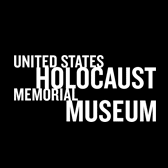
"The Holocaust in Estonia: The Problem of Indigenous Collaboration"
Professional Background
Mr. Anton Weiss-Wendt received an M.A. in modern Jewish history at New York University and a B.A. in modern European history at the University of Tartu, Estonia. During his fellowship at the Museum, he was a Ph.D. candidate at Brandeis University. For his Charles H. Revson Foundation Fellowship for Archival Research, Mr. Weiss-Wendt conducted research for his project “The Holocaust in Estonia: The Problem of Indigenous Collaboration.”
Mr. Weiss-Wendt has published several articles in scholarly journals including, “Extermination of the Gypsies in Estonia during World War II” in Holocaust and Genocide Studies (Spring 2003); “What We Make out of the Holocaust: American and Estonia Compared,” in Vikerkaar (Spring 2001); and “The Soviet Occupation of Estonia in 1940-1941 and the Jews,” in Holocaust and Genocide Studies (Fall 1998). He has presented his research at major international scholarly conferences. In 1999, he spoke on Estonian collaboration at the United States Holocaust Memorial Museum’s symposium, Perspectives on Indigenous Collaboration in the Baltic States during the German Occupation. He has worked for the Robert Wagner Labor Archives at New York University, the Andrei Sakharov Archives at Brandeis, and the U.S. Department of Justice’s Office of Special Investigations. He is the recipient of numerous awards including Dorot and Fulbright Fellowships as well as grants from the Soros Foundation, Max Kade Foundation, and German-American Exchange Program (DAAD).
Fellowship Research
During his tenure at the Museum, Mr. Weiss-Wendt researched the degree to which various strata of Estonia’s population participated in the segregation and subsequent murder of the Jews. By studying records in Russian, German, Estonian and English (as well as in Hebrew and Yiddish), his analysis of collaboration in Estonia was drawn from a sociopolitical historical examination of inter-ethnic relations prior to the Holocaust. He utilized several of the Museum’s war crimes collections, such as the Polish Main Commission files, and the Soviet Extraordinary State Commission files. Mr. Weiss-Wendt also identified survivor testimony held at the Museum and the Shoah Foundation and used the Museum’s Registry of Holocaust Survivors to identify and interview additional eyewitnesses.
Mr. Weiss-Wendt was in residence at the Mandel Center from January 1 to September 1, 2003.
